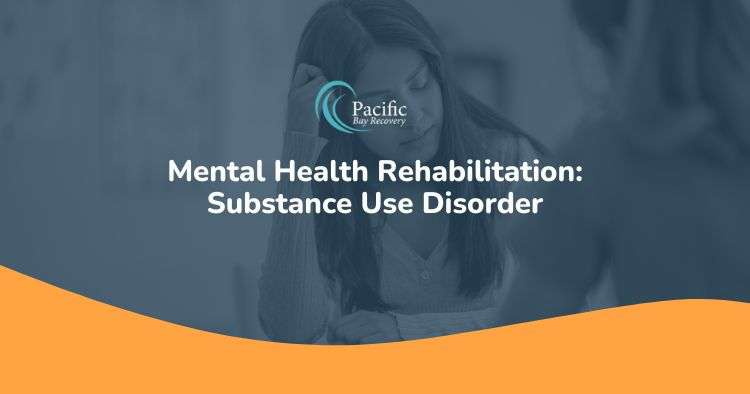When you have a problem with substance abuse along with a mental health issue like bipolar disorder, depression, or anxiety, it’s referred to as a dual diagnosis or a co-occurring disorder. Handling alcoholism, drug addiction, or substance abuse is never easy, and it is even more challenging when you are also experiencing issues of mental health.
In a co-occurring disorder, both the drug or alcohol addiction and mental health problem have their own set of symptoms that might impede your capability of functioning at school or work, maintaining a stable life at home, handling life’s difficulties, and relating to other people. To make matters worse, co-occurring disorder also affects each other. If a mental health issue is left untreated, the problem with substance abuse typically gets worse. And if drug or alcohol abuse increases, problems with mental health usually also increase.
Mental health issues and co-occurring substance abuse issues are more common than most people realize. According to the Journal of American Medical Association reports:
- Approximately 50% of people who have severe mental disorders are impacted by substance abuse.
- In addition, 53% of drug abusers and 37% of alcohol abusers have at least one severe mental illness.
- Of all those diagnosed with mental illness, 29% abuse drugs or alcohol.
Mental health issues and substance abuse problems do not get better when they are ignored—as a matter of fact, they’ll probably get worse—but it is vital that you know that you do not have to go on feeling this way. There are actions you can take to repair your relationships, conquer your demons, and get on the path to recovery. With the proper treatment, self-help, and support, it is possible to overcome co-occurring disorders, reclaim a sense of self, and get on with your life.
What is Substance Use Disorder?
Substance use disorder is a condition that involves compulsive substance use. Substance use disorder develops once substance use interferes with the capability of functioning on a daily basis. It may occur with non-prescription or prescription drugs.
Healthcare professionals once used the phrase “drug abuse” to define substance use disorder. Another word for substance use disorder is addiction. It’s different than dependence.
Substance misuse vastly impacts public health. In 2017, over 70,000 people in the U.S. died from overdoses, according to the CDC (Centers for Disease Control and Prevention). And each year, roughly 88,000 people die from excessive use of alcohol in the U.S.
In addition, substance misuse leads to other types of public health issues, like:
- Possibility for child neglect and abuse
- Familial stress
- Violence
- Impaired and drunk driving
Plus, reusing or sharing needles for IV drug use increases the risk of transmitting and contracting infectious diseases, which include hepatitis and HIV.
The APA (American Psychiatric Association) defines substance use disorder as a disease of the brain. It can be characterized by a repeat in substance use despite its negative effects. Substance use disorder will involve many biological and social factors.
The best method of preventing substance use disorder is by educating yourself with the right information. That’s why Pacific Bay Recovery keeps a blog of updated and important information to keep people informed and educated.
Substance Use Disorder Vs. Addiction
Substance use disorder vs. addiction is frequently used interchangeably. Realistically, people who are addicted to substances and those who abuse substances differ. Both have adverse effects on a person’s life, but understanding the difference between abuse and addiction helps to remedy and understand the situation. People who abuse alcohol and drugs are still in control of their lives, whereas people who have an addiction have a disease affecting multiple aspects of their life. Those who have addiction might appear to only have a problem with abuse, when, in fact, their life is starting to slowly spiral out of control. Likewise, people who have an abuse issue may appear as if they have an addiction, yet they’re actually in control of the substance use.
Recommended Treatments
Depending upon the kind of substance use disorder, stage one of treatment might be medically assisted detox. In this stage, supportive care is given as the substance clears from the bloodstream.
Detox is followed up with other types of treatments to encourage abstinence. A lot of treatments involve group and individual counseling. They’re offered in inpatient residential recovery programs or outpatient facilities.
In addition, medications may decrease symptoms of withdrawal and encourage recovery. For example, with heroin addiction, the doctor might prescribe a medicine referred to as methadone or Suboxone (buprenorphine/naloxone). Those medications may ease your recovery and assist you in coping with the intense stage of withdrawal.
For more information on mental health rehabilitation if you suffer from a substance use disorder please feel free to get in touch with our dual diagnosis treatment center San Diego, Pacific Bay Recovery, today at (619) 350-8220 or fill out our easy inquiry form here.


